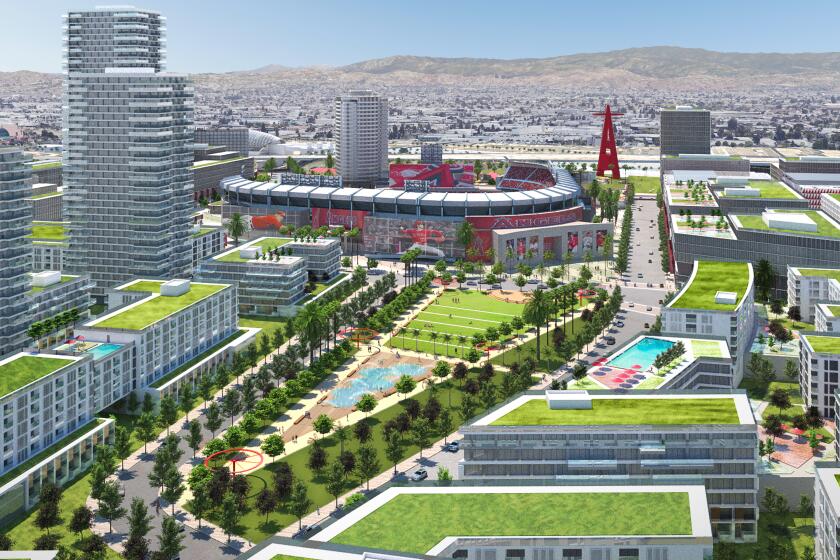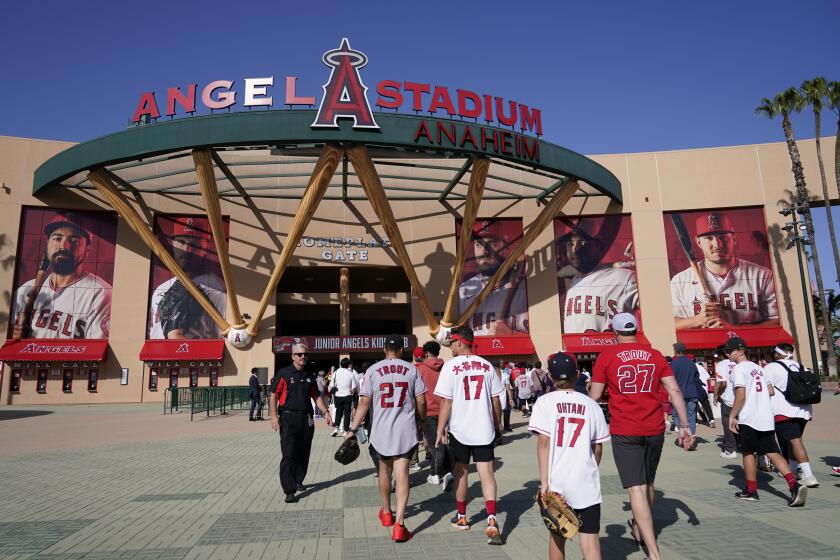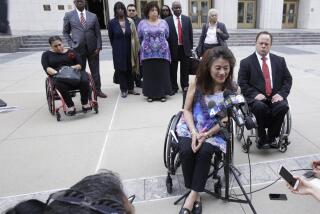State housing agency to Anaheim City Council: Reject new Angel Stadium deal
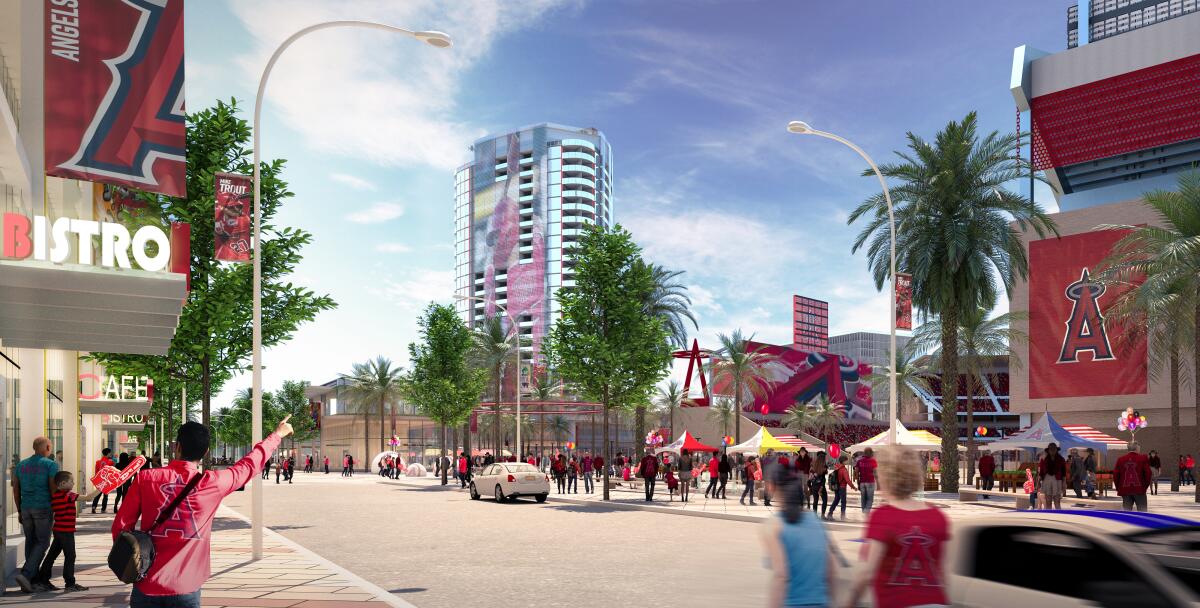
- Share via
The state housing agency on Friday urged the Anaheim City Council to reject a revised development agreement for the Angel Stadium property, potentially setting the stage for a new showdown between the agency and the city.
In a statement, the agency said the revised agreement — which cut the promised number of affordable housing units in the proposed Angel Stadium development by about 80% — shows the city and the Angels owner Arte Moreno’s development company “don’t take our enforcement and affordable housing seriously.”
The California Department of Housing and Community Development, or HCD, had charged the city with violating state housing law by not making the property available to affordable housing developers. In order to settle the matter, the city agreed last month to a stipulated judgment in which it would commit $96 million — the amount of the fine for which the city would have been liable — toward the construction of about 1,000 units of affordable housing beyond the stadium property.
As part of his stadium deal, Angels owner Arte Moreno paid $96 million to Anaheim to fund affordable housing projects elsewhere in Anaheim.
In a news conference, California Atty. Gen. Rob Bonta presented the settlement as a win-win proposition, with Anaheim getting more affordable housing overall — and more quickly, since the $96 million in seed money would have to be used within five years.
Moreno’s company, SRB Management, agreed to provide that funding by refunding $96 million in development credits — that is, about 80% of the $124 million the city had credited in the original agreement.
In return, the city negotiated a disposition and development agreement, or DDA, under which the number of affordable housing units SRB would be required to develop at the stadium was reduced from 466 to either 84 or 104.
SRB would have 25 years to build those units. If it did not, it would not be liable for refunding its remaining $28 million in development credits.
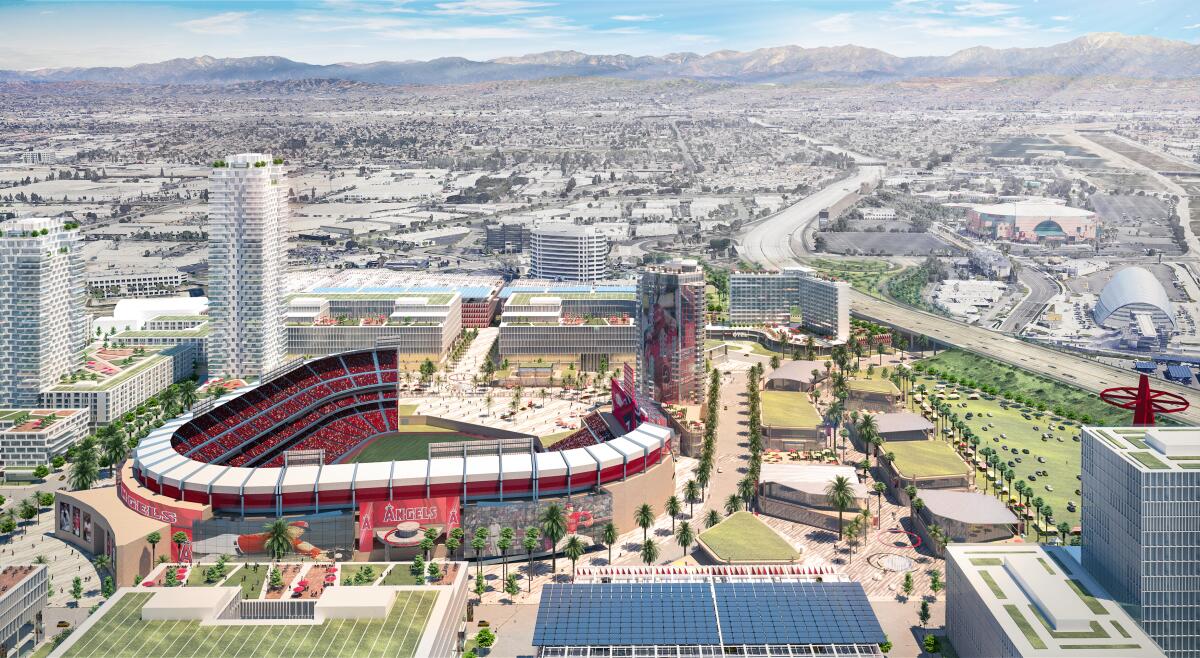
“As we have stated repeatedly, the City of Anaheim and SRB’s transaction violated the Surplus Land Act. We extracted the maximum penalty and additional commitments to affordable housing for this violation,” said Megan Kirkeby, HCD deputy director of housing policy development, in a statement late Friday.
“The revised DDA is evidence the city and SRB don’t take our enforcement and affordable housing seriously. HCD will exercise everything in our power to hold them accountable.
“It is difficult to see how the DDA aligns with the stipulated judgment. We encourage the city council to reject the revised DDA.”
The Anaheim Planning Commission approved the revised agreement this week. The City Council is expected to approve the revised agreement next month.
It is unclear how HCD believes the city might have violated the judgment, or what provisions of the judgment HCD might be seeking to enforce. HCD declined to comment Friday beyond the statement.
The city of Anaheim and the state housing agency have reached a settlement, opening the door for the Angel Stadium land sale to be finalized.
The judgment encourages the city to pursue outside funding so as to assist SRB in building as many of the originally proposed 466 affordable units as possible but specifically stipulates that “the actual number of units to be developed shall not be binding.” If SRB does not want to partake in discussions about outside funding, the stipulation reads, “such refusal shall not constitute a violation of this judgment.”
In a statement, Anaheim spokesman Mike Lyster said the settlement satisfied a goal shared by the city and HCD: more affordable housing, and in this case the greatest expansion of affordable housing in the city’s history.
“We continue to disagree with the state’s notice of violation, which was never tested in court, as well as comments on the stadium site development plan,” Lyster said.
“The development plan is consistent with our agreement, and we remain committed to exploring additional affordable housing beyond what is called for.
“Now it’s time to move forward and put disagreements behind us, as is called for in our agreement with the state.”
Voters will ultimately decide if they believe the Angels’ land deal with Anaheim was the right move. And the success of the team could be a factor.
More to Read
Go beyond the scoreboard
Get the latest on L.A.'s teams in the daily Sports Report newsletter.
You may occasionally receive promotional content from the Los Angeles Times.

